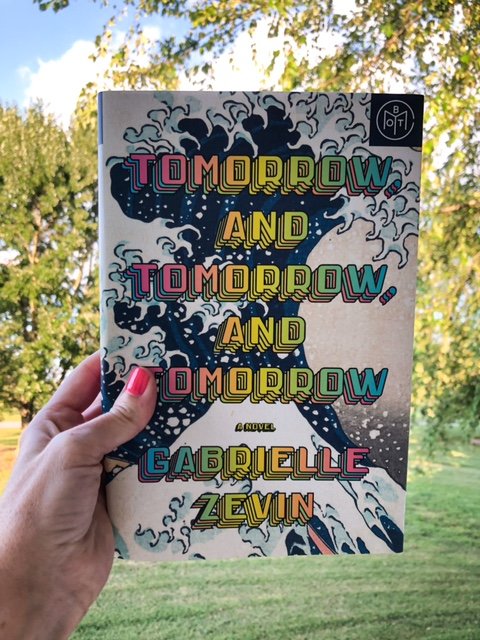Welcome, Stranger
“What is a game?” Marx said. “It’s tomorrow, and tomorrow, and tomorrow. It’s the possibility of infinite rebirth, infinite redemption. The idea that if you keep playing, you could win. No loss is permanent, because nothing is permanent, ever.” —Gabrielle Zevin, Tomorrow and Tomorrow and Tomorrow
Tomorrow and Tomorrow and Tomorrow by Gabrielle Zevin is both beautiful and difficult to describe. It is the story of Sam and Sadie, who meet and bond over video games when they are children, and grow up to create video games together. But this simple description is basic plot, and this story far transcends basic plot. It’s about friendship, true love, the nature of and wonder in work and in play, the power of creating to heal and to shape people. It’s about growing and changing, about forgiving and letting go, about aging, and about how all the bits of the plotline in a person’s life are potential tools for discovery. It’s a gorgeous and wonderful story that reaches far beyond an elevator pitch and nestles straight into the heart, soul, and mind of the reader. This book is not just for gamers; it’s for people willing to embrace their humanity.
Why, as we age, do we begin to think play is not important? Sometimes as a parent, I have thought about how I don’t play exceptionally well. It was sometimes hard to take a handful of dinosaurs and crawl around on the floor making fake voices and letting them leap off cliffs. I did it because my kids considered it to be play, because they loved it. But when I read a book to my kids, my sense of play returned in full force–voices, tension, everything. It’s the same when I read for myself, or when I sit down and type words on a screen. It’s play, and it’s delightful. Is it also work? It can be. As children that doesn’t seem to bother us. Teachers create assignments that combine work and play. Parents play alphabet games and number games with their children. My kids loved a giant geography game that stretched over the whole floor. Why is it that as adults we think it’s either/or, and that if we’re playing, we’re not doing serious work?
I loved this quotation from the book:
“‘I imagine people playing. Sometimes, it’s one of our games, but sometimes, it’s any game. The thing I find profoundly hopeful when I’m feeling despair is to imagine people playing, to believe that no matter how bad the world gets, there will always be players.’
“As Sadie spoke, Sam was reminded of a winter afternoon, many years ago, and of commuters clogging up the train station, blocking his path. At the time, they’d seemed like impediments to him, but maybe he’d been thinking of them the wrong way. What makes a person want to shiver in a train station for nothing more than the promise of a secret image? But then, what makes a person drive down an unmarked road in the middle of the night? Maybe it was the willingness to play that hinted at a tender, eternally newborn part in all humans. Maybe it was the willingness to play that kept one from despair.”
Play opens us to the act of creation that gives life meaning.
Tomorrow and Tomorrow and Tomorrow is a book about all of life–the joy, grief, and searching for meaning. It’s easy to give up when things are hard. But creating our lives and in our lives is an act of salvation. It heals. It connects. It brings us hope. I’ve seen this in my life, and I believe it.
Today, as I open the computer and stare at this document–absolutely sure I haven’t said what I wanted to say, positive what I’ve written is garbage–I’m holding on to this belief with every word I type.

